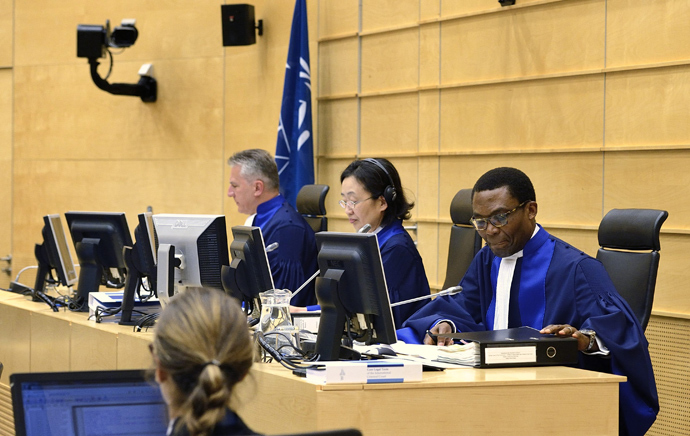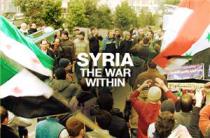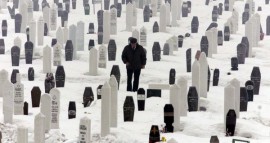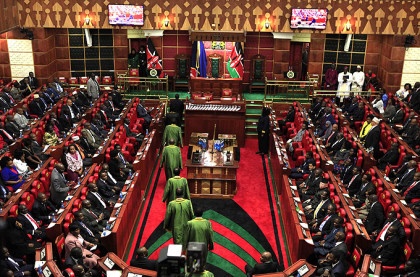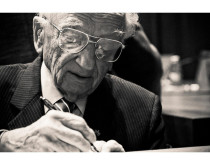Page under construction
The International Criminal Court (ICC), The Hague
International Criminal Court - ICC website
International Criminal Court - Wikipedia
Crimes against humanity - ICC website
Crimes against humanity- Wikipedia
Rome Statute - ICC website
Rome Statute - Wikipedia
Ratification of the Rome Statute
International Committee of the Red Cross - Rome Statute
Prevent Genocide - Rome Statute - International Criminal Court
International Criminal Court
Wikipedia
Not to be confused with the International Court of Justice (ICJ).
The International Criminal Court (ICC or ICCt)[2] is an intergovernmental organization and international tribunal that sits in The Hague in the Netherlands. The ICC has the jurisdiction to prosecute individuals for the international crimes of genocide, crimes against humanity, and war crimes. The ICC is intended to complement existing national judicial systems and it may therefore only exercise its jurisdiction when certain conditions are met, such as when national courts are unwilling or unable to prosecute criminals or when the United Nations Security Council or individual states refer investigations to the Court. The ICC began functioning on 1 July 2002, the date that the Rome Statute entered into force. The Rome Statute is a multilateral treaty which serves as the ICC's foundational and governing document. States which become party to the Rome Statute, for example by ratifying it, become member states of the ICC. Currently, there are 123 states which are party to the Rome Statute and therefore members of the ICC.
The ICC has four principal organs: the Presidency, the Judicial Divisions, the Office of the Prosecutor, and the Registry. The President is the most senior judge chosen by his or her peers in the Judicial Division, which hears cases before the Court. The Office of the Prosecutor is headed by the Prosecutor who investigates crimes and initiates proceedings before the Judicial Division. The Registry is headed by the Registrar and is charged with managing all the administrative functions of the ICC, including the headquarters, detention unit, and public defense office.
The Office of the Prosecutor has opened nine official investigations and is also conducting an additional nine preliminary examinations. Thus far, 36 individuals have been indicted in the ICC, including Ugandan rebel leader Joseph Kony, Sudanese president Omar al-Bashir, Kenyan president Uhuru Kenyatta, Libyan leader Muammar Gaddafi, and Ivorian president Laurent Gbagbo.
2013 Holocaust Remembrance Day Message of UN Secretary-General Ban Ki-moon
The Holocaust: German and American Law
Syrian Civil War
Wikipedia
The Syrian Civil War is an ongoing armed conflict taking place in Syria. The unrest began in the early spring of 2011 within the context of Arab Spring protests, with nationwide protests against President Bashar al-Assad's government, whose forces responded with violent crackdowns. The conflict gradually morphed from prominent protests to an armed rebellion after months of military sieges.[75] Read more
President Obama's letter on Syria
The White House, Syria Foreign Policy
Washington Report on Middle East Affairs
Justice in Syria: If not the ICC, then What?
When national systems totally fail, the Treaty of Rome applies.
- International criminal law mirage or justice?
What Happended to the Hague Tribunal?
Once a burial ground for partisan heroes of World War II, Lion Cemetery now contains many victims of the siege of Sarajevo.
What Happened to the Hague Tribunal?
The New York Times
by ERIC GORDY Op-Ed Contributor
June 2, 2013
The International Criminal Tribunal for the Former Yugoslavia decided on Thursday to acquit two Serbian state security officials, Jovica Stanisic and Franko Simatovic. The acquittal is one of a series of dramatic reversals by the tribunal over the last year, and it fits into the evolution of an institution that
came in with a squeak, banged around for a bit, and looks likely to go out with a whimper.
Stanisic and Simatovic had the largest hand in creating, training, arming, financing and directing several of the paramilitary groups responsible for a large number of
crimes in Croatia and Bosnia-Herzegovina. The tormented reasoning of the tribunal’s 800-page verdict offers some fascinating reading: It affirms that crimes were committed and describes them in excruciating detail. It names the victims, names the perpetrators, and in most cases
details the connections between the accused parties and the direct perpetrators.
Then it declines to convict, on the ground that the evidence does not show that the support provided to the criminals was "specifically directed towards the commission of
the crimes."
International Criminal Tribunal for the former Yugoslavia, Wikipedia
Kenya parliament to reconsider ICC membership
Kenya parliament to reconsider ICC membership
Aljazeera Africa
September 4, 2013
Legislators recalled for vote in advance of trials of president and vice president at international court at the Hague.
Kenya's parliament has been recalled to debate ending its membership of the International Criminal Court, in advance of a crimes-against-humanity trial of
the vice-president starting next week.
Joyce Laboso, parliamentary deputy speaker, issued on Tuesday the order for the "special sitting of the assembly", with parliament to meet on Thursday.
However, even should Kenya choose to leave the ICC - the first country potentially to do so - it would not affect upcoming trials since legal proceedings have already
begun.
The ICC trial opened of Vice-President William Ruto, who is facing three counts of crimes against humanity for allegedly organising 2007-2008 post-election unrest that killed at least 1,100
people and displaced more than 600,000.
Ruto's trial comes about two months before that of President Uhuru Kenyatta on November 12, who faces five charges of crimes against humanity, including murder, rape,
persecution, deportation and other inhumane acts.
Both Kenyatta and Ruto have said they will cooperate fully with the court but deny the charges against them. Read more
Nuremberg principles, Wikipedia
The Robert H. Jackson Center
Nuremberg - Benjamin B. Ferencz
Ben Ferencz - Facebook
Benjamin B. Ferencz
Wikipedia
Benjamin Berell[1] Ferencz (born March 11, 1920)[2][3] is a Hungarian-born American lawyer. He was an investigator of Nazi war crimes after World War II and the Chief Prosecutor for the United States Army at the Einsatzgruppen Trial, one of the twelve military trials held by the U.S. authorities at Nuremberg, Germany. Later, he became an advocate of the establishment of an international rule of law and of an International Criminal Court. From 1985 to 1996, he was Adjunct Professor of International Law at Pace University. Read more
- Benjamin B. Ferencz website Law. Not war.
- Ben Ferencz Facebook
Ferencz Closes Lubanga Case for ICC
May it please your Honors,
This is a historic moment in the evolution of international criminal law. For the first time a permanent international criminal court will hear the closing statement for the Prosecution as it concludes it first case against its first accused Mr. Thomas Lubanga Dyilo.
I witnessed such an evolution. As an American soldier, I survived the indescribable horrors of World War II and served as a liberator of many concentration camps. Shortly thereafter, I was appointed a Prosecutor at the Nuremberg War crimes trials which mapped new rules for the protection of humanity. I was 27 years old then. I am now in my 92nd year, having spent a lifetime striving for a more humane world governed by the rule of law.
I am honoured to represent the Prosecutor and to share some personal observations regarding the significance of this trial.
The most significant advance I have observed in international law has gone almost unnoticed; it is the slow awakening of the human conscience. The 1948 Universal Declaration of Human Rights proclaimed inalienable, fundamental rights of “all members of the human family as a foundation of freedom peace and justice in the world.” Countless human rights declarations have been made over many years by many dedicated persons and organizations. But legal action to enforce the promises has been slow in coming.
In Rome in 1998, when the Statute that binds this Court was overwhelmingly approved, over a hundred sovereign states decided that child recruitment and forcing them to participate in hostilities were among “the most serious crimes of concern for the international community as a whole.” Punishing perpetrators was recognized as a legal obligation.
What makes this Court so distinctive is its primary goal to deter crimes before they take place by letting wrongdoers know in advance that they will be called to account by an impartial International Criminal Court. The law can no longer be silent but must instead be heard and enforced to protect the fundamental rights of people everywhere.
The Prosecutor’s Office spoke at length meticulously detailing grim facts establishing the responsibility of the accused for the crimes alleged. The evidence showed that waves of children, recruited under Mr. Lubanga’s command, moved through as many as 20 training camps, some holding between eight and sixteen hundred children under age 15.
Words and figures cannot adequately portray the physical and psychological harm inflicted on vulnerable children who were brutalized and who lived in constant fear. The loss and grief to their inconsolable families is immeasurable. Their childhood stolen, deprived of education and all human rights, the suffering of the young victims and their families left permanent scars. We must try to restore the faith of children so that they may join in restoring the shattered world from which they came.
Imagine the pain of mothers crying and pleading at the door of the camps still suffering and wondering what happened to their children. Picture the agony of the father who said : “[…] he is my first son. All of my hopes were laid on him. […]the child was ruined. […] Today he can do nothing in his life. He has abandoned his education. And this is something which affects me greatly.”
All of the girls recruited could expect to be sexually violated.
All of these events which the Prosecution has carefully presented have been proved beyond reasonable doubt. Once again, “the case we present is a plea of humanity to law.” It was a call for human beings to behave in a humane and lawful way.
The hope of humankind is that compassion and compromise may replace the cruel and senseless violence of armed conflicts. That is the law as prescribed by the Rome Statute that binds this Court as well as the UN Charter that binds everyone. Vengeance begets vengeance. The illegal use of armed force, which is the soil from which all human rights violation grow must be condemned as a crime against humanity. International disputes must be resolved not by armed force but by peaceful means only. Seizing and training young people to hate and kill presumed adversaries undermines the legal and moral firmament of human society.
Let the voice and the verdict of this esteemed global court now speak for the awakened conscience of the world.

